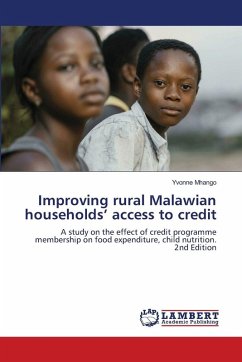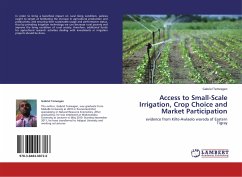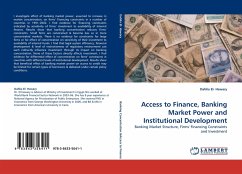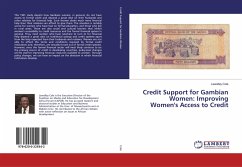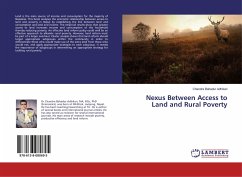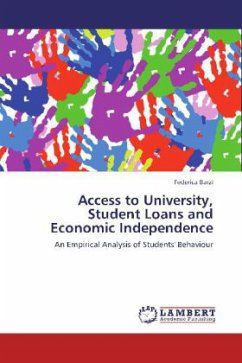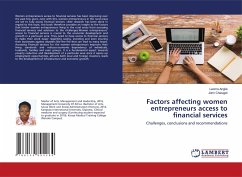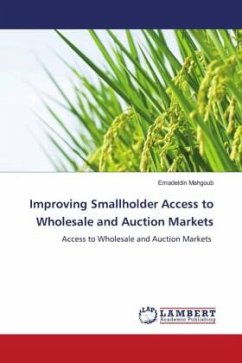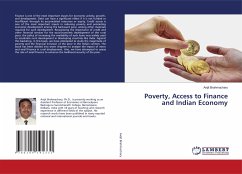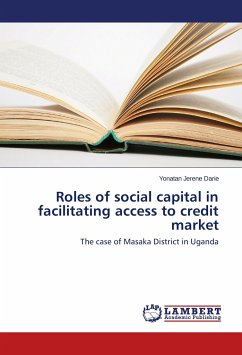
Roles of social capital in facilitating access to credit market
The case of Masaka District in Uganda
Versandkostenfrei!
Versandfertig in 6-10 Tagen
22,99 €
inkl. MwSt.

PAYBACK Punkte
11 °P sammeln!
While growing literature discusses social capital and economic development, there is a recent debate on whether or not social capital is capital of the poor. This study assesses the extent of social capital among sample households and its contribution in facilitating access to credit. The study indicates that most of the respondents have weak social capital. Secondly, social capital measured as a composite of participation, membership, status of the member, general trust level, and number of friends of a household has positive contributions in facilitating access to credit. However, the random...
While growing literature discusses social capital and economic development, there is a recent debate on whether or not social capital is capital of the poor. This study assesses the extent of social capital among sample households and its contribution in facilitating access to credit. The study indicates that most of the respondents have weak social capital. Secondly, social capital measured as a composite of participation, membership, status of the member, general trust level, and number of friends of a household has positive contributions in facilitating access to credit. However, the random effect logit model for individual data indicates low probability of credit accessibility. Moreover, the study indicates that informal financial sectors and revolving credit and saving associations are relatively accessible to the poor. As this study shed lights on the roles of social capital, academic professionals and developmental practitioners who involve in rural credit sector can benefit a lot. Moreover, the formal financial institutions and the government sectors with attention of addressing liquidity problems with rural and urban poor can benefit from this study, significantly.



